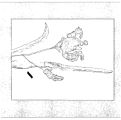| Title |
In One Piece |
| Creator |
Zaritsky, Lynn |
| Collection |
Utah Arts Council - Writing Competition |
| Identifier |
In One Piece.pdf |
| Date |
2009 |
| Subject |
Biography / Autobiography |
| Spatial Coverage |
Mount Pleasant |
| Rights Management |
Digital Image © 2010, Utah Arts Council. All Rights Reserved. |
| Digitization Specifications |
Fujitsu fi-6770A scanner, grayscale, at 400 dpi. |
| Language |
eng |
| Holding Institution |
Utah Arts Council - Utah State Archives |
| Scanning Institution |
Enable Industries |
| Format |
application/pdf |
| Source Size |
8.5 inches x 11 inches |
| Type |
Text |
| Scanning Technician |
Brian C. Day |
| ARK |
ark:/87278/s63f7hrn |
| Setname |
dha_uac_wcm |
| ID |
131548 |
| Reference URL |
https://collections.lib.utah.edu/ark:/87278/s63f7hrn |





























































































































































































































































































































































































































